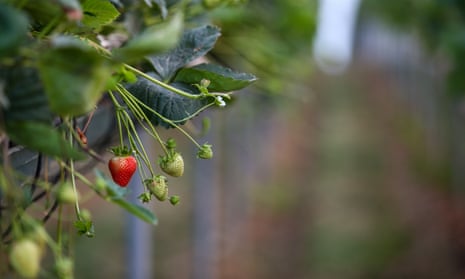As farms began to panic about a likely shortage of labour caused by Brexit, the seasonal worker visa was presented as a panacea.
Just 2,500 people came to Britain in a pilot of the scheme in 2019. But when the predicted shortage came to pass the following year, it was expanded rapidly, before an assessment of the pilot could be concluded.
About 40,000 people will come to the UK under the seasonal worker scheme this year, and there are increasing concerns that the hastily constructed programme puts workers at risk of labour exploitation.
When the government review of the pilot was finally slipped out on Christmas Eve last year, it had some concerning polling from workers. It showed 29% of labourers said operators did not adhere to contractual agreements, almost half did not receive a contract in their native language, and 15% said their accommodation was not safe, comfortable, hygienic or warm.
During the Conservative leadership race, Liz Truss signalled her intention to expand the scheme, pledging: “We will make it easier for farmers and growers to access the workers they need, with a short-term expansion to the seasonal workers scheme, while working with industry to address longer-term skills shortages.”
A recent report from the Association of Labour Providers said the Home Office and Defra had not engaged with industry experts in establishing the rules, leaving workers vulnerable to exploitation.
David Camp, the chair of the Association of Labour Providers, said: “The scheme rules need significant amendment. Defra and the Home Office need to work with the industry, to work with experts in responsible recruitment, and properly define a scheme that puts worker protection at its heart.
“This scheme should be a model of good practice. In reality, it is making some workers vulnerable to exploitation. This needs to change, and fast.”
Russia’s invasion of Ukraine made the shortage created by Brexit more critical. Ukrainians made up two-thirds of all workers arriving on seasonal worker visas in 2021, with almost 20,000 working on British farms.
When war broke out before the picking season was due to start and the number of Ukrainians using that visa route dwindled, recruiters had to look much further afield. There is a reported rise in farm workers arriving from Indonesia, Nepal, Vietnam, Kyrgyzstan and Kazakhstan.
Despite this, farms have still struggled to find workers. The National Farmers’ Union estimated recently that as much as £60m worth of food was wasted in the first half of 2022 because of a lack of pickers.
